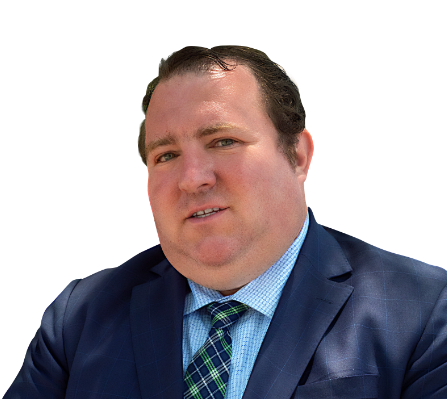Recently advocates of the Trump Administration’s policy on deportation have sought to weaponize an outdated law to criminally prosecute anyone who helps undocumented immigrants. The logical expansion of this law would allow prosecution of priests, social workers and even lawyers. An appeals court recently struck down an overly broad 1986 law under the First Amendment, because covers conversations between family members and legal advice. A 1986 federal law makes it a crime to “encourage” unauthorized immigrants to come to or stay in the United States. The Court reasoned that
“The statute potentially criminalizes the simple words — spoken to a son, a wife, a parent, a friend, a neighbor, a co-worker, a student, a client — ‘I encourage you to stay here,’” Judge A. Wallace Tashima wrote last year for a unanimous panel of the United States Court of Appeals for the Ninth Circuit, in San Francisco, in striking down the law. The law applies to a grandmother urging a grandchild to overstay a visa or a lawyer advising a client to stay in the country while fighting deportation. This is particularly troubling because our New York deportation lawyers know that some immigrants who are out of status can legally adjust their status while they stay in the country, so arguably given legal advice to exercise rights can be criminally prosecuted, which is absurd. The law may also cover public officials helping immigrants in sanctuary cities and perhaps even speeches at immigration rallies.
Last month, the Supreme Court agreed to decide whether the law can be squared with the First Amendment. The case, United States v. Sineneng-Smith, is one of several significant immigration matters on the court’s docket.

Immigration issues are on the forefront of the Supreme Court’s docket this term. The court will soon hear arguments on whether the Trump administration can rescind protections for so-called Dreamers. Later in the term, the Supreme Court will consider whether immigrants can go to court to challenge orders calling for their expedited removal.
The First Amendment case concerns Evelyn Sineneng-Smith, who ran an immigration consulting firm in San Jose, Calif. Her clients, mostly from the Philippines, worked without authorization in the home health care industry. Ms. Sineneng-Smith offered to help them get green cards under a Labor Department certification program that she said would give them permanent resident status and allow them to work legally. But the program had expired. Ms. Sineneng-Smith nonetheless charged her clients $6,800 to file applications she knew to be futile. She was convicted of mail fraud, a conviction that the Ninth Circuit affirmed and that Ms. Sineneng-Smith is not challenging in the Supreme Court. The question for the justices is whether her separate conviction under the 1986 law for encouraging her clients to stay in the United States was proper. In the Ninth Circuit, Ms. Sineneng-Smith argued that she had a First Amendment right to file the applications, which was not a particularly strong argument. “Speech integral to criminal conduct,” the Supreme Court has said, is not protected by the First Amendment. When the case reached the Ninth Circuit, it did something unusual. It asked for briefing on a different First Amendment question. The court wanted to know whether the law was overbroad, chilling the free speech of people other than Ms. Sineneng-Smith. After getting additional briefs and hearing another round of arguments, the appeals court ruled that the law was unconstitutional. In urging the Supreme Court to hear its appeal, the Trump administration said the Ninth Circuit had gone too far. The Supreme Court has said that striking down laws because they are too broad is “strong medicine” to be used only when the laws are unconstitutional in a substantial number of real-world settings rather than in “fanciful hypotheticals.” In Ms. Sineneng-Smith’s case, the government argued that it did not pursue prosecutions based on ordinary interactions with unauthorized immigrants. In the Supreme Court, Ms. Sineneng-Smith’s lawyers said they should be allowed to challenge the law in order to protect the constitutional rights of other people.
Whatever the literal language of the 1986 law,the government in its petition seeking review, criminal laws are “ordinarily understood not to prohibit abstract advocacy of illegality. “Just as a teenager does not aid, abet or solicit marijuana possession merely by saying to a friend, ‘I encourage you to try smoking pot,’” a grandmother does not violate the 1986 law “merely by saying to her grandson whose visa has expired, ‘I encourage you to stay.’” However, the 1986 law does discuss financial gain, but in a separate provision allowing longer sentences when money is involved.
Prosecutions under the law tend to be limited to cases concerning classically criminal conduct by unsympathetic defendants. But not always. In 2012, for instance, a Massachusetts woman, Lorraine Henderson, was convicted of hiring an unauthorized immigrant to clean her home and offering general and not always reliable advice about immigration law. In that case, Judge Douglas P. Woodlock, of the Federal District Court in Boston, wrote that the “plain and unadorned language” of the law “can be read to cast a wide net over those who interact with illegal aliens by offering employment.” However, Ms. Henderson’s was granted motion for a new trial based on his misgivings about the sweep of the law. Prosecutors dropped the case.
That was small comfort, Judge Tashima wrote. “Just because the government has not (yet) sought many prosecutions based on speech,” he wrote, “it does not follow that the government cannot or will not use an overbroad law to obtain such convictions.”
